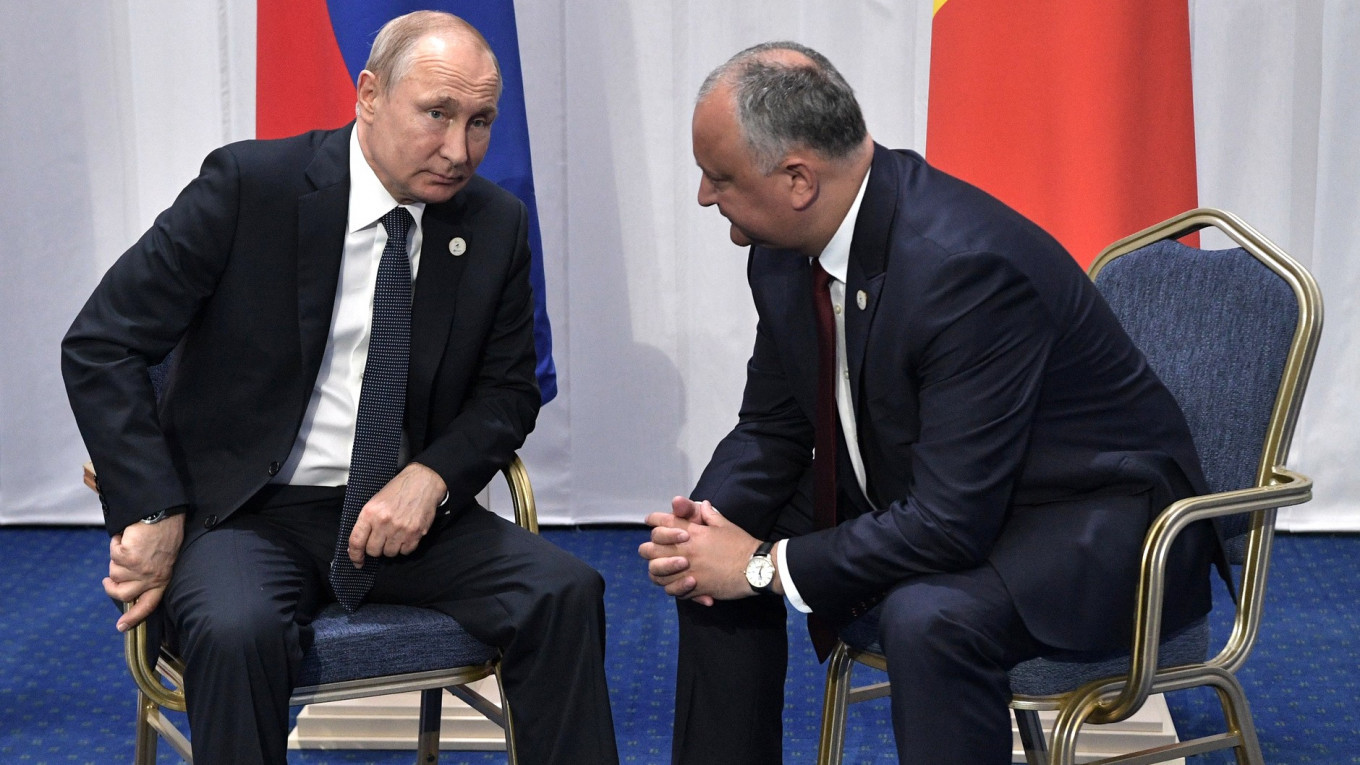
Moldovans went to polls on Sunday to elect a president under the watchful eye of Moscow which wants the polarised country to remain in its orbit amid political and security crises on Russia’s borders.
Polling stations opened at 0500 GMT and will close 14 hours later.
Despite its small size, politics in tiny Moldova, which is wedged between Ukraine and NATO member Romania, have long been deeply sensitive.
The impoverished country of 3.5 million has been divided between those favoring closer ties with the EU, in particular Romania, and those who cling to Soviet-era relations with Moscow.
Moldova’s pro-Moscow president Igor Dodon, who is seeking a new four-year mandate, said his politically volatile country was tired of upheaval. He urged people to vote for “peace, stability, and development.”
“Enough of squabbles and conflicts!” he said ahead of the election.
Dodon, 45, came to power in 2016, beating his pro-Western rival Maia Sandu, who wants Moldova to join the European Union, and he is hoping to defeat her again.
Sandu is a 48-year-old center-right opposition candidate who briefly served as prime minister between June and November 2019.
Dodon’s main rival has promised to “move the country forward on the path of integration with the EU” and create more jobs to stem a mass exodus of workforce.
Many voters said they had grown tired of politicians’ quarrels and just wanted a better life.
“We want better living conditions, schools for children and above all peace,” said Marin Ioan, a pensioner in the northeastern town of Soroca.
Experts predict a second-round runoff on November 15, as neither Dodon nor Sandu are expected to secure an outright majority on Sunday.
As well as the two frontrunners, six more candidates are contesting the vote.
‘Referendum on Dodon’
Russian President Vladimir Putin has expressed hope that Moldovan voters would back Dodon, noting their country’s economy — battered by the coronavirus outbreak — is firmly linked to Russia.
Valeriu Pasa, an analyst with the think tank WatchDog Moldova, compared the polls to a “referendum on Dodon’s mandate” and said Moscow was keen to maintain the status quo in Moldova.
“The current regime is fully subordinate to the Kremlin,” Pasa told AFP.
Dodon, who served as economy minister under a communist government between 2006 and 2009, has promised continued close ties with Moldova’s “strategic partner” Moscow and has said the Russian language should become compulsory in schools.
Some find the former Socialist Party leader’s program unconvincing.
“For 70 years we lived under the yoke of Russia which treated us as vassals,” said Gheorghe Istrate, a 59-year-old resident of Chisinau. “We’ve had enough.”
Moldova was part of the Soviet Union between 1940 and 1991.
But Ekaterina Radetskaya, 69, said Dodon deserved a second chance.
“He’s a good man and a good president,” she told AFP, insisting that the Moldovan leader had been prevented by opponents from fully implementing his program.
Russia last week accused the United States of preparing a “revolution” in Moldova.
In a rare public statement, the head of Russia’s Foreign Intelligence Service (SVR) Sergei Naryshkin alleged that Washington was inciting the Moldovan opposition to take to the streets after the vote to denounce its validity and demand a re-run.
Russia stations troops in Moldova’s Moscow-backed breakaway region of Transnistria, which broke away after a brief civil war following the collapse of the USSR in 1991 and is not internationally recognized.
Four hours before polls were due to close at 9:00 pm local time (1900 GMT), turnout was at 36 percent. First results expected overnight.
